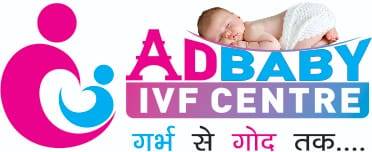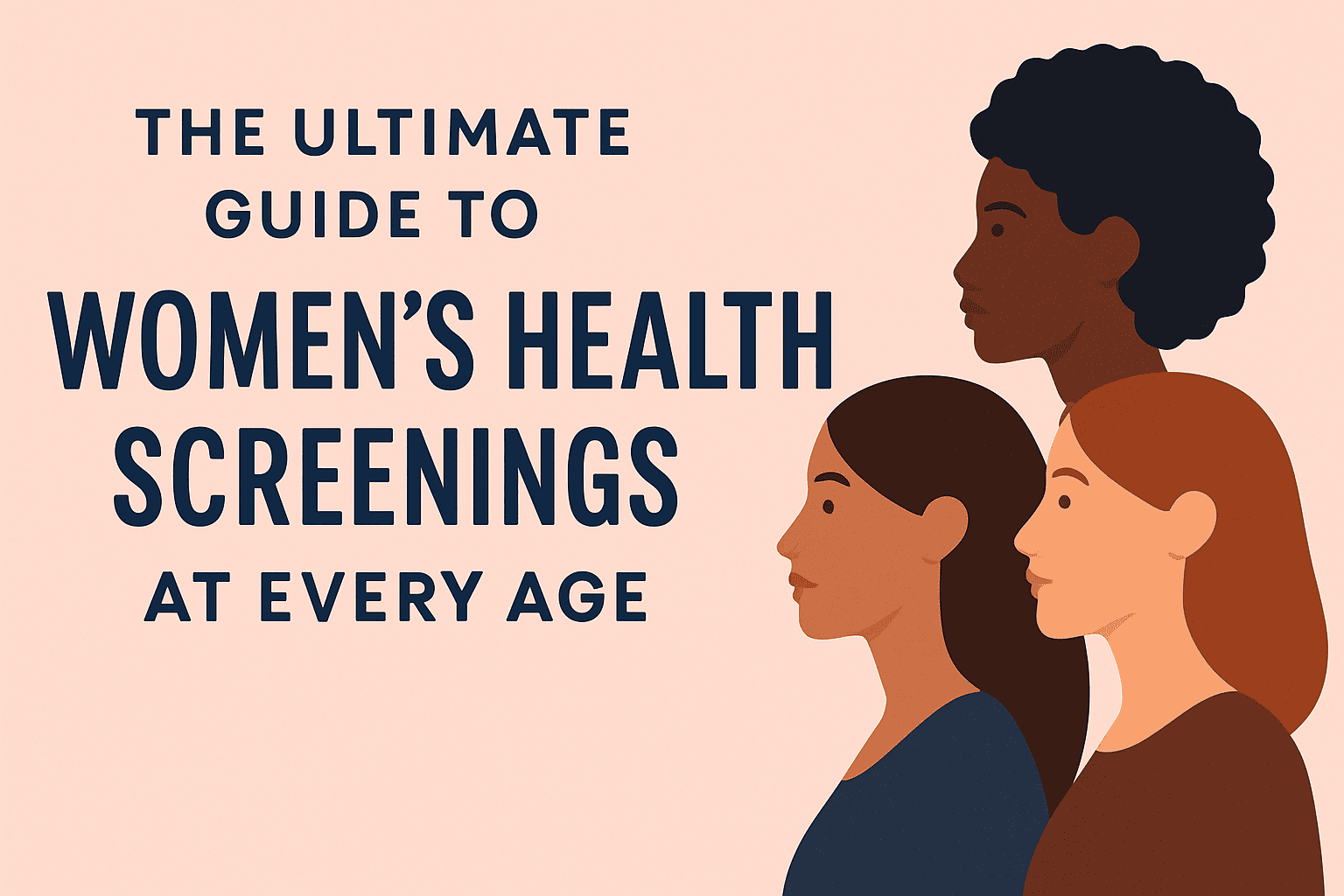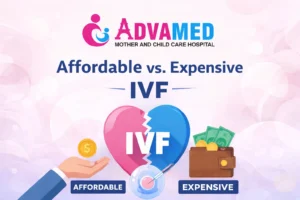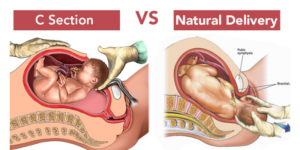Women’s health screenings are very important for your long-term health as they are not just ordinary doctor’s appointments. They are vital tools that help prevent serious illness and find problems early. Getting regular check-ups gives every woman a clearer and easier path to a healthier future.
This helpful guide will explain exactly why these tests are so important for you and also show you which health checks you should focus on first. At AdvaMed Hospital, we understand the importance of personalized healthcare, especially when it comes to fertility and reproductive health. Early detection through comprehensive screenings can make a significant difference, particularly for women considering IVF (In Vitro Fertilization) and other fertility treatments.
Why Women’s Health Screening Matters
The Power of Early Detection
Getting regular health checks is important for finding problems early. Some serious diseases, like cervical and breast cancer, can start with no signs. Finding them early makes treatment much easier and more successful. For example, a simple Pap smear test can find cervical cell changes before they ever become cancer.
Preventive Health for Women: More Than Just Cancer
At AdvaMed Hospital, we emphasize that prevention and early intervention are crucial. Conditions such as polycystic ovarian syndrome (PCOS), endometriosis, thyroid disorders, and age-related fertility decline can significantly affect a woman’s ability to conceive. Early diagnosis ensures timely management and improves chances of successful treatment, including IVF.
As lifestyle-related health issues become more common, the regular checkups are now even more important. They give you useful health information long before you ever feel any symptoms.
Key Screenings Every Woman Should Know About
Depending on age and risk, not all screenings apply to everyone. Here are the most important ones to discuss with your gynecologist and primary care provider:
Reproductive and Gynecological Screenings
- Pap Smear / HPV Test: This test finds unusual cells in the cervix and the virus that can cause cervical cancer.
- Pelvic Exam: A doctor checks your reproductive organs for any signs of a problem.
- Breast Exam & Mammogram: A physical check for lumps, and an x-ray (usually from age 40) to find early breast cancer.
- Bone Density Scan: This is important after menopause to check your risk for weak bones (osteoporosis).
Pelvic and Ultrasound Examinations
Ultrasound screenings allow early detection of structural abnormalities such as uterine fibroids, ovarian cysts, or congenital anomalies. At AdvaMed, advanced imaging technologies provide precise assessments, enabling early intervention to improve fertility outcomes.
Infectious Disease Screening
Infections like HIV, Hepatitis B & C, and sexually transmitted infections (STIs) can affect fertility and pregnancy. Comprehensive testing ensures safe IVF procedures and minimizes risks for both mother and child.
Genetic and Pre-Conception Screening
Genetic testing helps identify inherited conditions that may affect fertility or pregnancy. Pre-conception screening ensures that couples are informed and can take preventive measures before starting IVF treatment.
Screenings for Women Planning IVF
If you are considering IVF or fertility treatments, certain health screenings become even more important. These tests help your doctor understand your hormone levels, egg reserve, and reproductive health before treatment begins. Common IVF-related screenings include:
- AMH Test: Checks ovarian reserve and helps predict IVF response.
- Transvaginal Ultrasound: Evaluates ovaries, uterus, and follicle count.
- Hormonal Profile (FSH, LH, Estradiol, Prolactin, Thyroid): Shows whether your hormones are balanced for conception.
- Genetic Screening: Helps identify inherited conditions that may affect pregnancy.
- Infectious Disease Screening: Required before IVF to ensure safety.
AdvaMed Hospital offers IVF-focused assessments as part of their preventive and fertility care program.
When and How Often to Get Screened
Screening frequency depends on your age, health history, and risk factors:
Age / Stage | Recommended Frequency |
20 to 30s | Annual gynecology checkups; Pap smear every 3 to 5 years (or as advised) |
40 to 50s | Regular blood work, mammograms, pelvic exams, and bone health evaluations |
60+ | More frequent screening for heart health, bone density, cancer depending on risk |
Your personal screening schedule can change based on your risks. For instance, if cancer runs in your family, your doctor may suggest you start tests earlier or have them more often.
How Early Detection Improves IVF Success
IVF is a life-changing procedure for many couples struggling with infertility. The success of IVF depends on multiple factors, including the age of the woman, egg quality, uterine health, and underlying medical conditions. Early detection through thorough screenings allows our specialists to:
- Tailor IVF treatment plans to individual needs
- Optimize egg retrieval and embryo quality
- Reduce complications during pregnancy
- Increase the overall success rate of conception
By addressing potential issues before starting IVF, we ensure that patients have the best possible outcomes.
AdvaMed Hospital’s Comprehensive IVF Services
At AdvaMed Hospital, our fertility experts provide a holistic approach to women’s health and reproductive care. Our IVF services include:
- Fertility Consultation: Personalized assessment to determine the most suitable treatment plan.
- Ovarian Stimulation: Advanced protocols to improve egg yield and quality.
- Egg Retrieval and Fertilization: State-of-the-art lab facilities for optimal fertilization and embryo culture.
- Embryo Transfer: Precision procedures to maximize implantation success.
- Cryopreservation: Safe storage of eggs and embryos for future use.
Additionally, our multidisciplinary team of obstetricians, gynecologists, embryologists, and pediatric specialists ensures that patients receive comprehensive care throughout their fertility journey.
Common Barriers & How to Overcome Them
Lack of Awareness
Surveys show many women miss important health check-ups. Often, this is because they do not know which tests they need or when to get them.
Fear or Discomfort
Some fear pain, embarrassment, or judgment during gynecological exams.
Time, Cost, or Access
Preventive healthcare can feel like a luxury when time or finances are tight. But skipping screenings often means higher costs later.
Building a Preventive Health Plan: Practical Steps
- Create a Screening Calendar: Plan your recommended health tests for the next one to five years. Base this schedule on your age and personal health history.
- Partner with a Gynecologist: Book a full check-up with a gynecologist. Talk to them about needed tests like a Pap smear, HPV test, and pelvic or breast exams.
- Track Your Results: Keep a personal health journal. Write down your test results, your doctor’s advice, and any next steps you need to take.
- Advocate for Yourself: If a test seems unnecessary, ask your doctor to explain it. Understand why it is recommended and how it will help you.
- Stay Informed: Keep learning about new health screening guidelines. This is especially important as you get older or if your health changes.
Real-World Impact: Why This Works
- Over 70% of serious women’s health problems can be prevented. This is possible if they keep up with their regular health check-ups.
- However, in India, the number of women getting screened is still very low. Only about 37% can get good quality preventive tests. This often leads to late diagnosis and more severe illness.
- The clear benefit of preventive care is that it saves money in the long run. It also leads to much better health for women.
Wrap Up
Regular women’s health screening is not optional. It is a proactive step to protect your future well-being. These check-ups help find potential health risks at an early stage.
We understand that worries about cost or fear can be barriers. However, overcoming them is a powerful way to take control of your health. Making screenings a normal part of your life does more than just protect you. It also sets a strong and healthy example for your loved ones.
Early detection is the key to better health outcomes and successful fertility treatments. By prioritizing women’s health screenings, you can address potential issues before they become obstacles, increase the chances of IVF success, and safeguard your long-term well-being.
If you’re considering starting your fertility journey or want to ensure your reproductive health is on track, contact AdvaMed Hospital today and schedule a comprehensive women’s health screening. Your journey to parenthood and optimal health starts here.
FAQs
Screenings help identify hormonal imbalances, structural issues, or infections that could affect fertility. Early detection allows specialists to create personalized IVF treatment plans, increasing the chances of success.
Common screenings include hormone tests (FSH, LH, AMH), pelvic ultrasounds, infectious disease testing, and genetic assessments. These tests help assess fertility potential and overall reproductive health.
For women planning IVF or pregnancy, an annual check-up is recommended. Those with fertility concerns or existing conditions may need more frequent evaluations based on their doctor’s advice.
Yes. Maintaining a healthy diet, exercising regularly, managing stress, and avoiding smoking or excessive alcohol can improve egg quality, hormonal balance, and overall fertility, complementing medical treatment.
Advamed Hospital offers comprehensive care, including consultations, screenings, IVF procedures, embryo transfer, cryopreservation, and post-treatment support, all provided by a multidisciplinary team of specialists.












